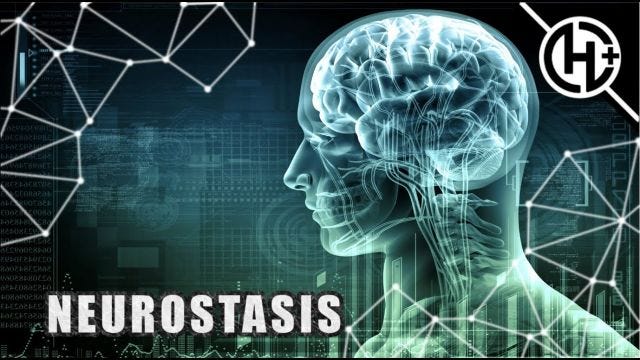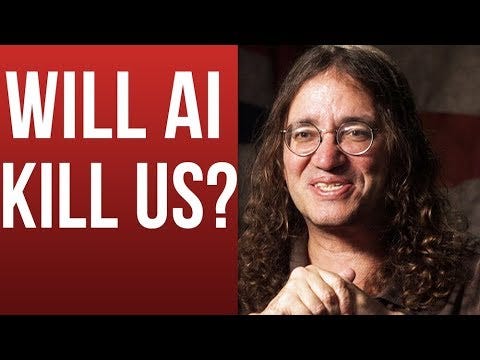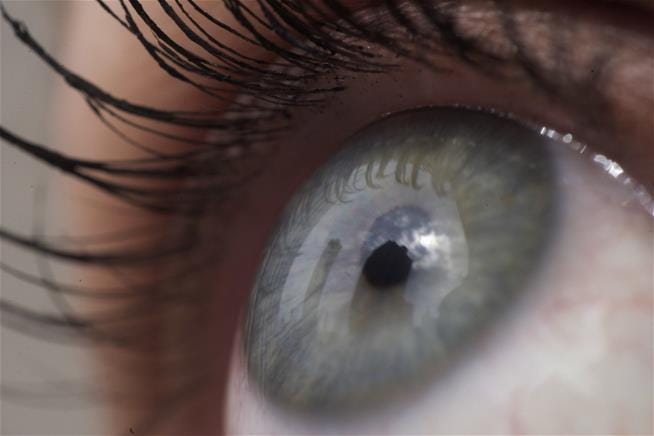Issue #217 - a closer look at mind uploading; will AI kill us; can AI be recognised as inventor; the dawn of designer proteins; and more!
View this email in your browser
This week - a closer look at mind uploading; will AI kill us; can AI be recognised as inventor; first CRISPR study inside the body to start in US; the dawn of designer proteins; and more!
SPONSORED
Get Data Analysis and Machine Learning books from O'Reilly
Start building your own AI systems with this Data Analysis and Machine Learning books from O'Reilly! You can get $711 worth of top quality books for just a fraction of that price.
Plus, your purchase will support Code for America and this newsletter. I see this as an absolute win.
Get your bundle and start building your own AI!
MORE THAN A HUMAN
► Mind uploading and transhumanism (22:44)

There are many ways in which you might achieve immortality. One of them is cryopreservation - freezing your body now in hope future technology finds a way to wake you up, fix you and make you live forever. This video focuses on freezing your brain and goes in-depth explaining the promise behind Nectome - a company that needs to kill you to extract your brain to preserve so one day you can wake up as an immortal being.
Vatican Hosts Conference Touching on Transhumanism
So, there was a transhumanists conference in Vatican.
Scientists Just Released a New Playbook for Engineering Longer, Healthier Lives
Here is a quick overview of what scientists are working on to extend humans healthspan and in the process extend human life, based on series of articles written by leading geroscientists for Nature’s 150 Anniversary Collection. The main conclusion is that we’re now at an inflection point to bring these ideas into the real world. It won't be easy but "the potential rewards…far outweigh the risks", they write.
Should the Rich Be Allowed to Buy the Best Genes?
Walter Isaacson, known for his biographies of great innovators, documents his journeys through North America and discussions with leading genetic engineers and ethicists about the implications of human enhancements and how to tackle this opportunity in such way that everyone, not just the top of the top 1%, benefit.
Prosthetic ‘tripod foot’ offers stability on rough terrain
Instead of looking like a normal human foot, this prosthetic foot looks like a tripod. According to the researchers, their design offers better stability or rough terrains. Outfitted with position sensors and motors, the foot could adjust its orientation to respond to varying terrain, much as someone with an intact foot could move their toes and flex their ankles to compensate while walking over rough ground.
ARTIFICIAL INTELLIGENCE
► Ben Goertzel - Will Artificial Intelligence Kill Us? How the Singularity Is Coming (44:52)

Ben Goertzel, one of the leading AI researchers, discusses in this interview the future of AI, how different cultures see it and how to make super-AI safe. Goertzel makes many interesting points in this interview, like the fact that the current AI systems being optimised for "selling, spying, killing and gambling" does not build good foundations for general artificial intelligence.
Building AI systems that work is still hard
This is an older article but I think the main points are still valid today. It looks at using machine learning in the context of business. It discusses four scenarios where AI research is heading (slow down, no changes, acceleration and something completely different) and how they can impact big companies as well as small companies.
AI Could Scan IVF Embryos to Help Make Babies More Quickly
Scientists at Cornell University trained an off-the-shelf Google deep learning algorithm to identify IVF embryos just by looking at the pictures as either good, fair, or poor, based on the likelihood each would successfully implant.
AI system 'should be recognised as inventor'
An artificial intelligence system should be recognised as the inventor of two ideas in patents filed on its behalf, a team of academics says. The AI has designed interlocking food containers that are easy for robots to grasp and a warning light that flashes in a rhythm that is hard to ignore. Patents offices insist innovations are attributed to humans - to avoid legal complications that would arise if corporate inventorship were recognised. The academics say this is "outdated".
ROBOTICS
Weekly Robotics Newsletter
If you like robots, then this is a newsletter for you. Weekly Robotics is, as the name suggests, a weekly newsletter about robots on a more technical level than I write here, with a nice selection ranging from news to tutorials to research papers. I highly recommend signing up.
► This Tiny Robot made at Georgia Tech is Barely Visible (1:44)
I can't say if this is the smallest robot ever built but this microrobot from Georgia Tech is very small. This micro-bristle-bot moves when vibrations interact with its 3D printed legs.
BIOTECHNOLOGY
First CRISPR study inside the body to start in US

Patients are about to be enrolled in the first study to test CRISPR-based therapy inside the body to try to cure an inherited form of blindness. People with the disease have normal eyes but lack a gene that converts light into signals to the brain that enable sight. The experimental treatment aims to supply kids and adults with a healthy version of the gene they lack. It’s intended as a onetime treatment that permanently alters the person’s native DNA. Two companies, Editas Medicine and Allergan, will test this in up to 18 people around the United States starting this fall.
The ‘dawn’ of designer proteins: Biologists build a protein that turns cells on and off
Biologists have created a protein unlike any found in nature, with the power to toggle a cell’s functions on and off. The scientists linked the artificial proteins together into circuits and controlled the inner workings of yeast — and also implanted these proteins into lab-grown human cells. The research is a step forward in de novo protein design, where scientists make new proteins “from scratch, from first principles”.
These Artificial Cells Are Not Alive - But They Just Passed The Turing Test
Scientists have built artificial cells that are so life-like, they've tricked natural cells into thinking they're communicating with one of their own. This twist on the classic Turing test means that not only can our robots fool humans into thinking they’re one of us - scientists can now make artificial cells that act so real, living organisms can’t tell the difference.
Thank you for subscribing,
Conrad Gray (@conradthegray)
If you have any questions or suggestions, just reply to this email or tweet at @hplusweekly. I'd like to hear what do you think about H+ Weekly.
Follow H+ Weekly!



